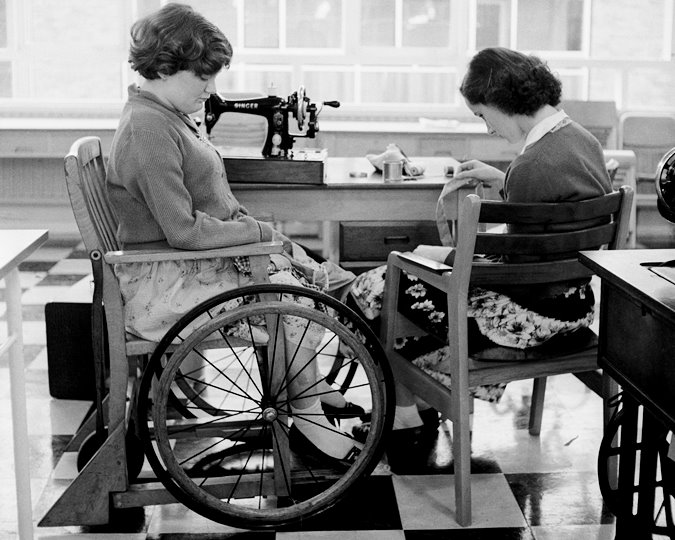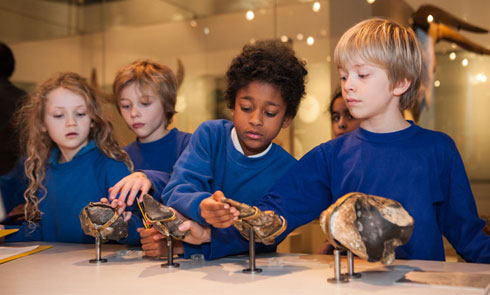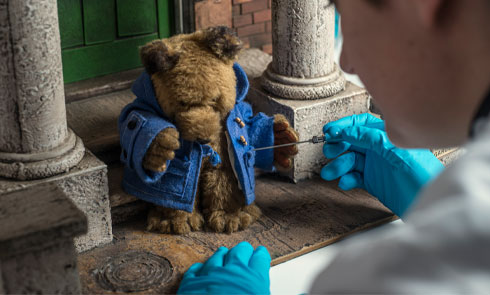Training bank
The London Museum Development Team is working to support museums across London with volunteer involvement.
The Training Bank provides a programme of free training for volunteers, and the training materials developed are available to download here for museums who want to run their own in-house training for volunteers and staff. These training materials were updated in April 2016. Kindly note that preferred disability and safeguarding terminology is evolving and its usage on the resources linked below may be out of date.
How to use the training bank
The documents below provide guidance on how to use the Volunteer Training Bank. The Train the Trainer guide aims to help museum staff, or volunteers who are managing other volunteers, to use the Volunteer Training Bank even if they have no previous experience of delivering formal training.
How to use the Volunteer Training Bank (PDF 105kb, opens in a new tab)
Train the Trainer Guide (PDF 366kb, opens in a new tab)
Session 1: Introduction to museums
This course is suitable for volunteers who are new to the museum sector and want to find out more about how museums 'work'. It covers what a museum is, the museum Code of Ethics, different types of museum and how they are founded, museum language, and the role of volunteers in museums.
Introduction to Museums - Training Plan (PDF 257kb, opens in a new tab)
Introduction to Museums - Presentation (PowerPoint 711kb, opens in a new tab)
Introduction to Museums - Handouts (PDF 273kb, opens in a new tab)
Session 2: Customer care
This course is suitable for any volunteers who have to work with the general public in person or by phone. It will help them explore the needs of a variety of museum customers, and how these impact on their work. There will also be a chance to look at ways of dealing with difficult situations.
Customer Care - Training Plan (PDF 374kb, opens in a new tab)
Customer Care - Presentation (PowerPoint 681kb, opens in a new tab)
Customer Care - Handouts (PDF 277kb, opens in a new tab)
Customer Care - Exercises (PDF 128kb, opens in a new tab)
Session 3: Disability awareness
This course tackles some of the assumptions people have about people with disabilities. It covers disability etiquette and language, the Disability Discrimination Act and what is meant by 'Reasonable Adjustments', and will look at some of the things volunteers can do to make their museums more accessible.
Disability Awareness - Training Plan (PDF 326kb, opens in a new tab)
Disability Awareness - Presentation (PowerPoint 1.12mb, opens in a new tab)
Disability Awareness - Handouts (PDF 198kb, opens in a new tab)
Disability Awareness - Exercises (PDF 189kb, opens in a new tab)
Session 4: Object handling
These resources have been removed. E-learning tools on the collection care training pages cover object handling and moving objects. The Regional Collection Care team can assist with any queries regarding moving and handling objects.
Session 5: Working safely with children
This course is suitable for all volunteers who work with children. It explores some of the legal issues around child protection, and look at ways of identifying and reducing risks.
Working Safely with Children - Training Plan (PDF 352kb, opens in a new tab)
Working Safely with Children - Presentation (PowerPoint 724kb, opens in a new tab)
Working Safely with Children - Handouts (PDF 309kb, opens in a new tab)
Working Safely with Children - Exercises (PDF 202kb, opens in a new tab)
Session 6: Creating tours for family audiences
This course has been designed for volunteers who want to develop a family-friendly tour. It explores how to plan, research, develop and research your tour. It also provides tips on creating an engaging tour for families and public speaking techniques.
Creating tours for family audiences - Training Plan (PDF 368kb, opens in a new window)
Creating tours for family audiences - Presentation (PowerPoint 1.11mb, opens in a new window)
Creating tours for family audiences - Handouts (PDF 275kb, opens in a new window)
Creating tours for family audiences - Exercises (PDF 500kb, opens in a new window)







